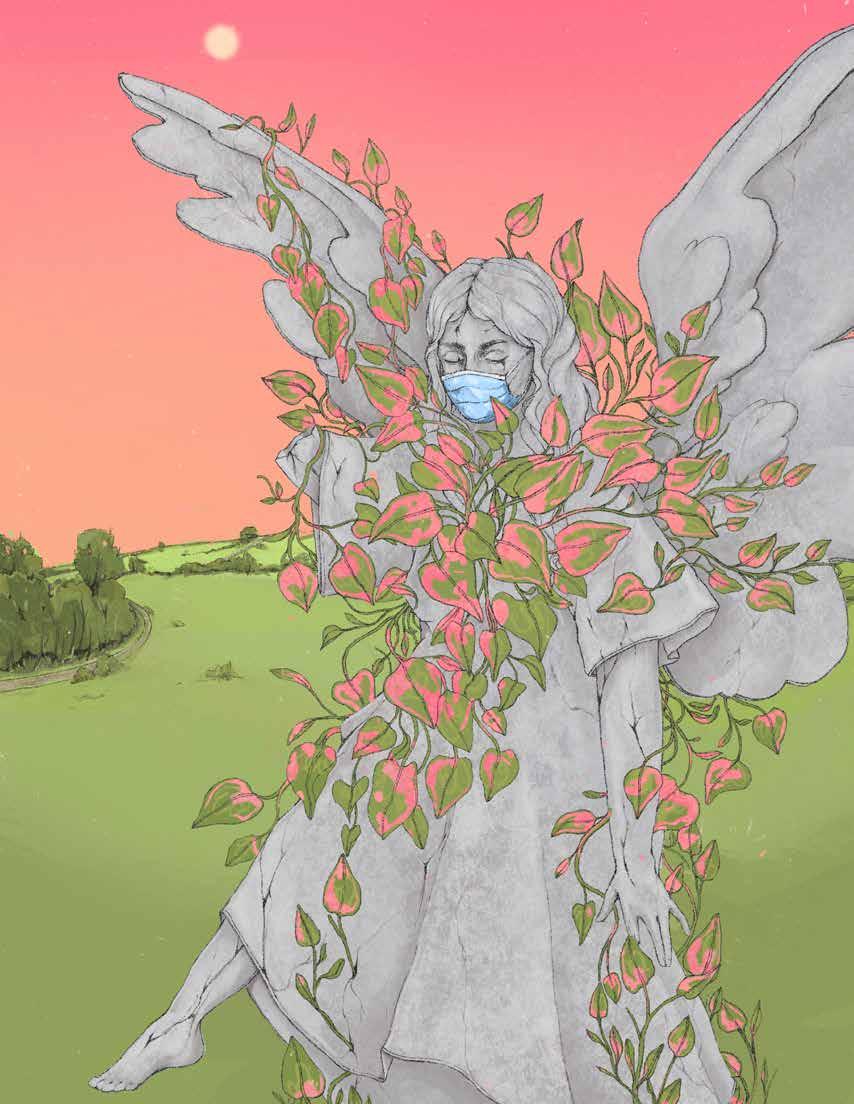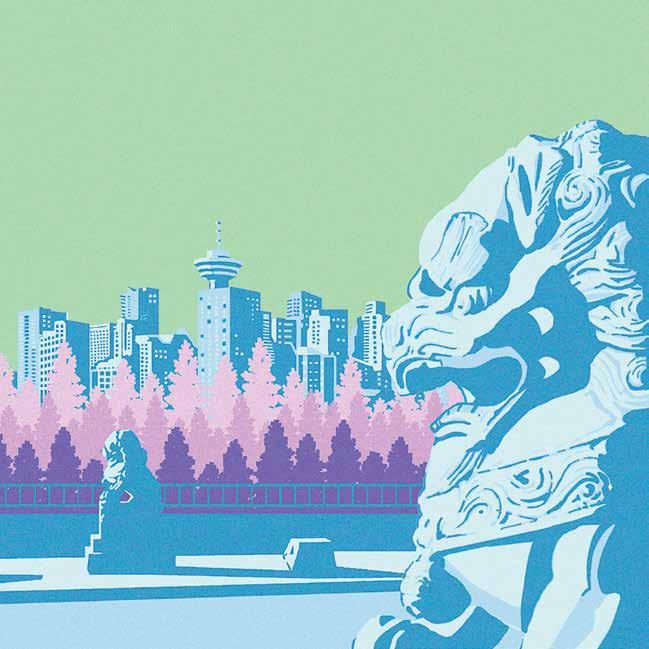
3 minute read
DOWNTO-EARTH
The rise of PPE has definitely reduced the spread of illness, but with the increased popularity of these single-use products, reusing and recycling may be at a new low — that’s where “plogging” comes in
As we approach Earth Day, it’s important we take a hard look at how we’ve affected the environment during the pandemic. It’s no secret that the earth is in peril, just a few weeks ago a list of cities that may be taking an underwater dip in the next few decades was released – with Vancouver pretty high up in the rankings. Now more than ever, we need to be looking out for this planet we call home.
Advertisement
B.C. has always had an eye out for the environment, with efforts to live in a more sustainable, greener province. Even going as far as to have a Greenest City Action Plan for Vancouver, which just wrapped up its decade-long journey in 2020 — and more recently with the plastic bag by-law that came into effect this January. But, with the focus on shopping bags and plastic cups, we’ve turned our gaze away from a new litter-fiend: masks.
Back in late 2021, news sites were flooded with an international study released on the effects of singleuse medical items and pollution. Masks, gloves and disposable sanitizing wipes found themselves thrown to the side in an increasingly worrying bout of littering. In fact, with just a casual stroll through Vancouver, you wouldn’t be surprised to find a few of those light blue medical masks strewn around the sidewalk.
According to Kieran Roberts, a professor in Portsmouth and one of the authors of the study, mask litter in particular, can have devastating effects. For one, the loops on the masks can very easily lead to choking animals in the same way that plastic sixpack loops can — and the materials of those little blue masks can prohibit plant growth and smother prosperous earth. All in all, the increase in mask litter has had a significant impact on our environment.
The mask mandate is no more, and people are still getting used to having their faces uncovered in public — but with masks transitioning out of commonality, where are all of them going?
Honestly, just where you expect them to go — on the ground. Living in the West End, a relatively environmentally conscious and green neighbourhood, I’ve found hundreds of masks scattered about Stanley Park and the Seawall, and I only expect it to get worse as less and less people stop wearing them. Which is why a lot of people, including me, have decided to take up a hobby that is so perfect for Vancouver it hurts: plogging. A portmanteau of the word ‘jog’ and ‘picking up’, or in Swedish, where the trend of plogging has its roots, the words ‘jogga’ and ‘plocka up’ — plogging is the process of picking up litter while you go on your jog. It started in 2016, and has since then found itself become a worldwide hobby. More recently however, Vancouverites have taken up the sport specifically to tackle the mask problem.
“If your GP is actually educated with endo and what those symptoms are, that’s the front line defence right there,” said Luciani. This lack of education can have grave consequences — according to the Canadian Patient Safety Institute, medical errors account for 28,000 deaths in Canada per year.
David Papineau, a local Vancouver jogger, started this specific litter battle almost a year ago, and has since picked up countless masks. Through his Twitter, he documents just how many masks he’s been picking up — estimated around 40-60 per one of his 10K jogs throughout the city. Even tweeting this January to mark a milestone of the masks he’s collected — “Mask 25,000, nestled among the rotting foliage on Union Street, right in front of the original location of Happy Planet…” Papineau plans on picking up approximately 30,000 by the end of his year-long endeavour, which will be wrapping up this month.
Plogging is one of those activities that anyone can easily pick up. Already jog? Great! Just bring some gloves and a bag (some folks use leftover bread bags) with you, it even adds some bending and squatting to your workout and gives a helping hand to the environment. Even if jogging isn’t your thing, “Plogga”, the association responsible for the movement, even has a little how-to guide on “pliking” — the hiking version of plogging.
It’s easy to look at news articles about the environment, and get downtrodden — we all know that things are looking pretty rough, but when “worry burnout” starts to take a toll there’s something to be said about all the good humanity is doing. Plogging and pliking are one of those things that can be a source of environmentally positive joy we can bring about, especially when it can feel like nothing you’re doing is making a difference. It’s important to take a deep breath, go outside, and enjoy the Earth we still have around — maybe while you’re out there pick up a couple masks off the street.












